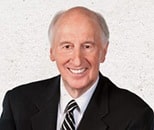Chapter 11: Praying For Someone You Don’t Want to Pray For
So Samuel called to the Lord, and the Lord sent thunder and rain that day; and all the people greatly feared the Lord and Samuel. And all the people said to Samuel, “Pray for your servants to the Lord your God, that we may not die; for we have added to all our sins the evil of asking a king for ourselves.” Then Samuel said to the people…The Lord will not forsake His people, for His great name’s sake, because it has pleased the Lord to make you His people. Moreover, as for me, far be it from me that I should sin against the Lord in ceasing to pray for you.” (1 Samuel 12:18-20, 22-23)
Have you ever noticed that there are people in our lives that we stop praying for? I think we have all done this at some time or other. Perhaps we do not like what they are doing or what they have done. We may have little or no interest in the interests they have or the circles they move in; or we may passionately oppose the standards they hold–or do not hold. Their attitudes or actions irritate or inconvenience us, bug us or become painful to us. They become people we “sign off” from, too easily forgetting the heart of God who is as relentlessly committed to sinners now as He was in sending His Son.
That, in fact, is the center-point from which our patience with sinners is to be measured against. Hear it again:
For when we were still without strength, in due time Christ died for the ungodly. For scarcely for a righteous man will one die; yet perhaps for a good man someone would even dare to die. But God demonstrates His own love toward us, in that while we were still sinners, Christ died for us. (Rom. 5:6-8)
I invite you to candidacy for an anointing of love. The story from God’s Word before us reveals and exudes a divine love that even when heartbroken, refuses to be diminished. The text of the story is a perfect example. It unveils God working His love in the heart of a person who had all but spat in his face. God’s heart is on the side of every human being! This does not mean He endorses everything anyone does. But while it is not an endorsement, His love does demonstrate an engagement, and it is our engaging those we would rather not pray for that helps us have His heart. How? By welcoming God to fill us with the Holy Spirit of patience and persistence, transforming us to have a heart to reach and a passion to pray.
As we process this together, we may discover the ease with which you or I can absorb the world’s disposition toward prejudice, hatefulness or reactionary rejection of others. We may be confronted with the contrast between God’s love for the world and ours. But these pages are important, pivotal, even, for some who read to become freed from attitudes that have been dominated by our personal or cultural preferences rather than ruled by the Savior who died for us. Ultimately, and demandingly, it starkly asserts to us all that whatever righteousness we have gained was unearned, and the actual unrighteousness marking us at the time did not hinder God’s will or readiness to accept us “while we were yet sinners.”
And that . .
Since, by faith, we have had “the righteousness of God in Christ” conferred upon us, that gift has not authorized us to compare our righteousness with anyone else, nor has it assigned us the task of passing judgment on another, nor has it legitimized negative opinions we have. Rather, it authorizes – and will empower us if we will receive it – a capacity to “love as we have been loved…”
How shall I think…and how shall I pray?
In the news, on stage, in so much music and in the constant stream of newer, more decadent films, we see people parading and promoting ungodly behavior. We resist, we take a stance against the values represented, not because of the people involved, but because the things being advanced are destructive to society’s health, which is why God’s Word prohibits them.
But too often, we mix our distaste for the behavior with irritation and hate for the people: “Those people make me sick!” We are vulnerable to becoming even more disappointed when civil or spiritual leaders waffle on issues of righteousness.
We are prone to turn our backs in disgust at neighbors who are just distasteful–rejecting these citizens-become-my-enemies just as much as they are hating and rejecting people like you and me. We are capable of compromising our discipleship under Jesus’ Lordship, not by the values we hold, but by the spirit in which we respond to those whose values offend Him. Antagonized, we are tempted to become antagonists, rather than responding like Samuel, who refused to cease caring for and praying for God’s opponents. We forget Christ’s call to Kingdom lifestyle and attitude: “Love your enemies. Pray for those who spitefully use you and persecute you.”
It would be a good thing for us to review God’s words periodically: “The rejection is of Me, not you-but I’m not giving up on them.” To be renewed in God’s Spirit via this truth will enable us to receive the tone and behavior Samuel displayed, and reflect the spirit of his response in our own circumstances: “Far be it from me that I should sin against the Lord in ceasing to pray for you.”
This reminds me of my need to ask myself this question: Is there anyone I have stopped praying for? I might not even care that I stopped–if I even recognize it. I might even justify my spite with self-righteous indignation. But to do either is to forget that God, who alone has the holy right to reject offending injustice or sin, never gives up caring–and my Father calls me to mirror His heart and never give up praying.
From The Secrets of Intercessory Prayer by Jack Hayford (formerly titled Praying For Those You Love), published by Chosen Books, a division of Baker Publishing Group, Grand Rapids, MI. Copyright © 2009 by Jack Hayford. All rights reserved.
Our gift of this article by Pastor Jack Hayford is made possible by your gracious support of the ministry. Partner with us online or call toll-free (800) 776-8180 to donate. (Outside the U.S., call (818) 779-8525).
Order Now


